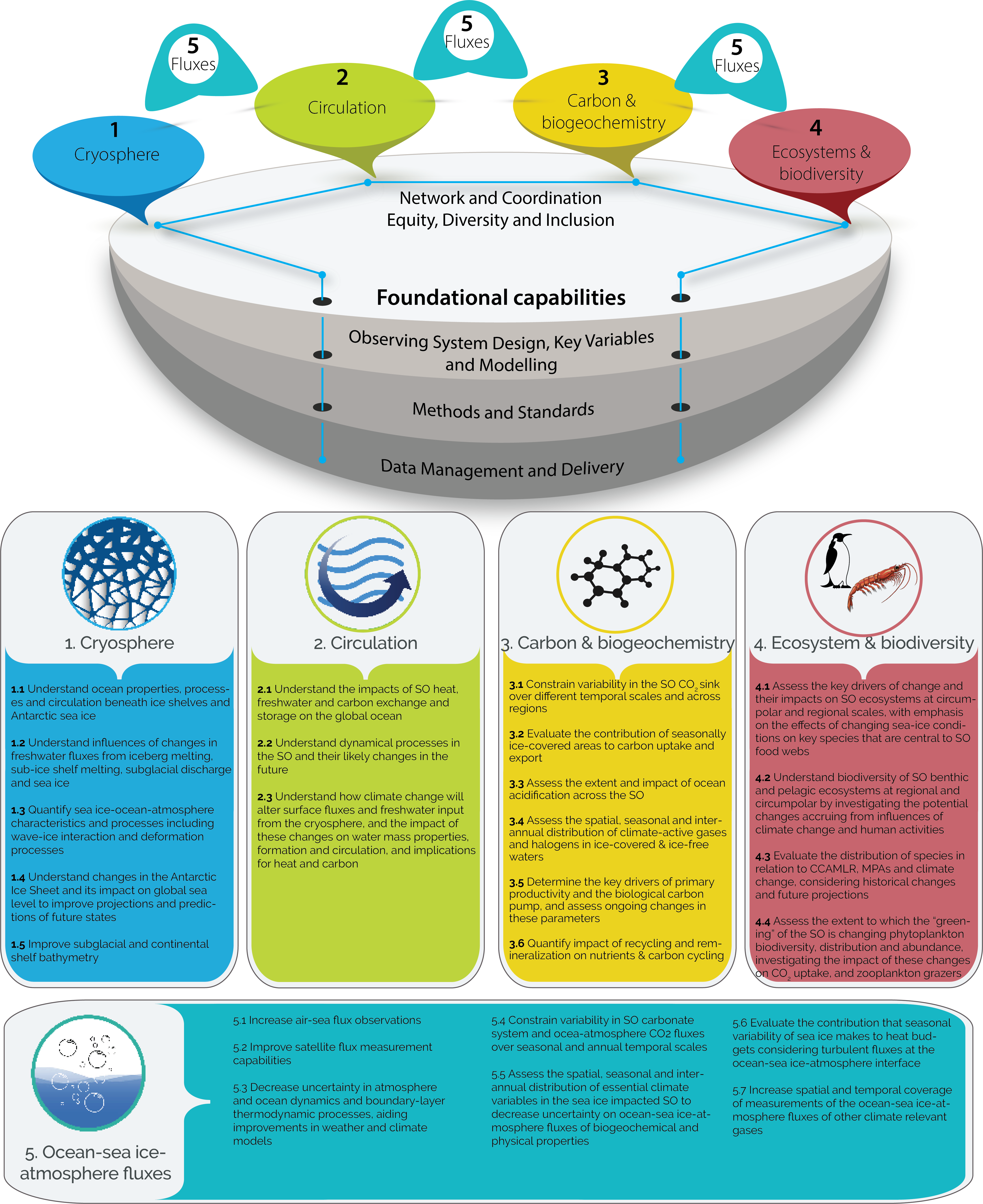Scientific Priorities
The importance of the Southern Ocean in the operation of the Earth System has been clearly recognised (e.g., IPCC, 2019). The Southern Ocean occupies a central position in the global ocean circulation system and is critical for the mixing, storing and distribution of ocean heat, salt and dissolved constituents throughout Earth’s ocean basins, influencing ocean processes at the global scale. Air-sea fluxes of momentum, heat and freshwater, carbon dioxide and other dissolved gases across the Southern Ocean regulate global climate and oceanic processes on short and long timescales. The Antarctic cryosphere (comprising sea ice and its snow cover, the ice sheet and icebergs) exerts a strong control on Southern Ocean physics, chemistry and biology, as well as large-scale atmospheric processes and the Earth’s radiative heat budget. Southern Ocean ecosystems are globally important for resident and migratory organisms, in global biogeochemical cycles and productivity, and contribute to global ocean health, biodiversity, and ecosystem services.
The critical role of the Southern Ocean in the Earth System, and the resulting data and observational needs provided the basis for establishing the Southern Ocean Observing System (SOOS) as a coordinating body. Find out more about SOOS and click here to see the SOOS mission, vision and values.
To focus SOOS activities over the next five years, five community-agreed Science Themes provide a balanced and integrated framework for coordination, collection and delivery of Southern Ocean data. For each SOOS Science Theme, Key Science Challenges are identified that articulate specific priorities of the SOOS community over the next 5 - 10 years and encompass the scientific drivers of a Southern Ocean observing system.
-
Theme 1: Understanding and quantifying the state and variability of the Southern Ocean cryosphere
-
Theme 2: Understanding and quantifying the state and variability of the Southern Ocean circulation
-
Theme 3: Understanding and quantifying the state and variability of Southern Ocean carbon and biogeochemical cycles
-
Theme 4: Understanding and quantifying the state and variability of Southern Ocean ecosystems and biodiversity
-
Theme 5: Understanding and quantifying the state and variability of the Southern Ocean-sea ice -atmosphere fluxes
More detailed scientific rationale and information can be found in the SOOS 2021-2025 Science and Implementation Strategy.







